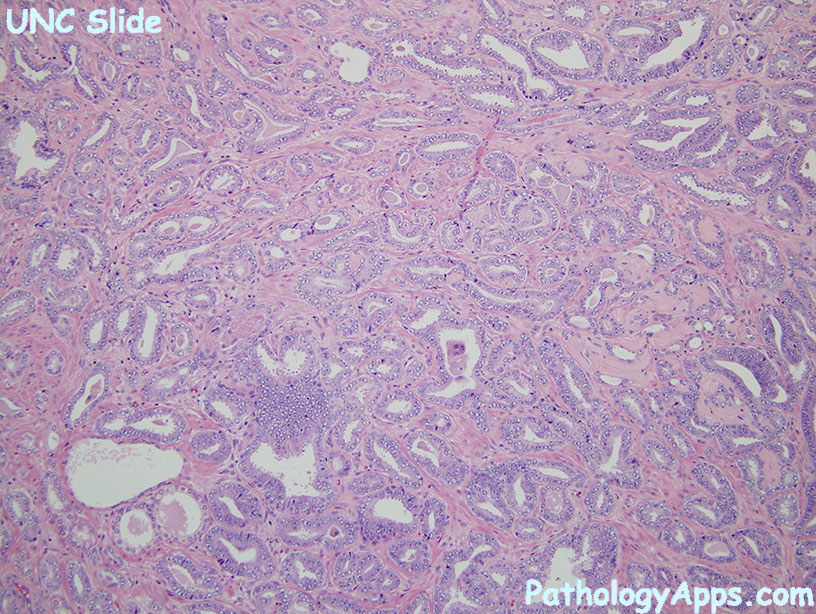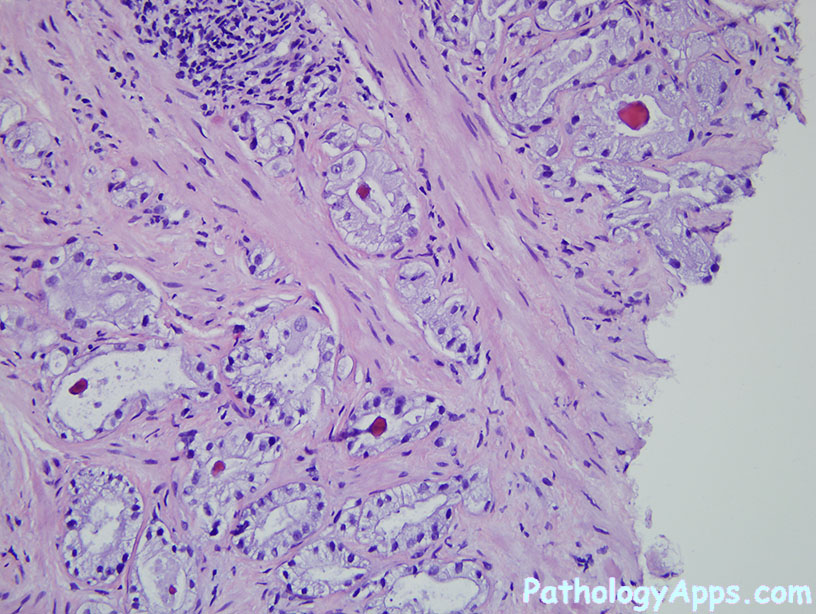adenocarcinoma




Expand All | Collapse All
Clinical
- race: black > white > asian
- age: 50+
- site: usually posterior / posterolateral prostate
- PSA > 4 ng/ml
- metastasize to bone
Histology
- architecture
- infiltrative, splaying smooth muscle
- haphazard, non-lobular
- crowded
- patterns
- cribriform, fused glands, poorly formed glands
- glands perpendicular to one another
- lack basal cell layer
- cytology
- nuclear atypia, enlargement, hyperchromasia, prominent nucleoli
- gland lumen less ruffled/convoluted
- amphophilic cytoplasm: lighter color than normal glands
- luminal
- crystals (not corpora amylacea)
- dense pink secretions
- other malignant features
- perineural invasion
- mucinous fibroplasia (collagenous micronodules): pink fibers
- glomerulations
- Variants
- atrophic
- pseudohyperplastic
- microcystic
- foamy gland
- mucinous (colloid)
- signet ring cell
- pleomorphic giant cell
- sarcomatoid
- oncocytic
- lymphoepithelioma-like
Treatment effects
Gleason
- Gleason 3 = discrete glands
- Gleason 4 = fused, cribriform glands
- Gleason 5 = solid sheets, single cells, comedo necrosis, karyorrhexis
- Total score: most prevalent + next most prevalent
- if a 3rd most prevalent, but higher score is present, it is included as the second score instead (Eg. 3+4+5 becomes 3+5)
- lower grade areas < 5% of tumor are ignored (Eg. 4+3 with only a tiny amount of 3 becomes 4+4)
- In radical prostatectomies, all tumor nodules over Gleason 3 get a score
- For Gleason 4+3 or 3+4, give % that is Gleason 4
Grade group
- 1: Gleason score 3+3=6
- 2: Gleason score 3+4=7
- 3: Gleason score 4+3=7
- 4: Gleason score 8
- 5: Gleason 9, 10
Stains
- positive: racemase = AMACR = P504S
- negative basal cell layer stains: p63, HMWCK = 34BE12 = CK903, p40
- positive prostate specific markers: PSA, PAP
